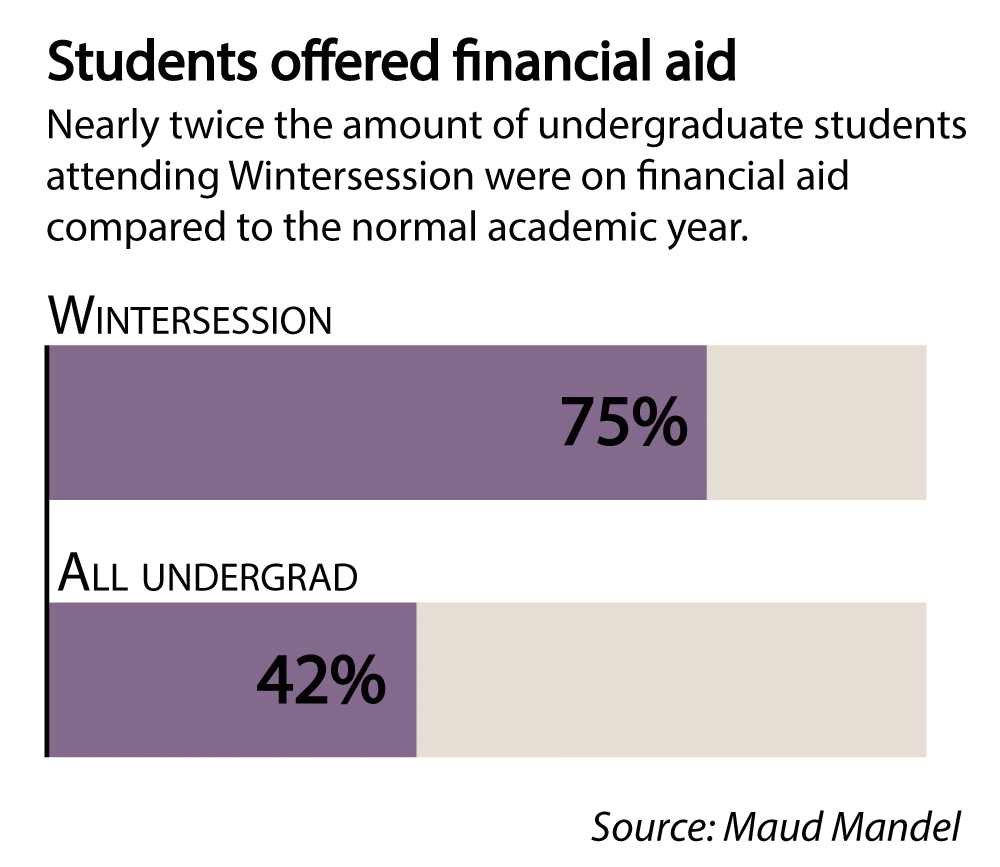The University’s pilot Wintersession program costs $6,278 per class for students, though around 75 percent of students received some sort of financial aid, said Dean of the College Maud Mandel.
“The cost for one student’s Wintersession course is the cost of what they would be paying in their tuition for one Brown course,” Mandel said. The University offered full financial aid for students participating in Wintersession, and this support was viewed as one of the top priorities by the committee of undergraduate students, graduate students and faculty determining all aspects of Wintersession, Mandel added.
For destination courses, Global Experiential Learning and Teaching grants covered essential travel costs, including flights, meals and health insurance, Mandel said. Each faculty member with an international course received a “block sum of $35,000, which they use to cover their own and the students’ travel expenses,” Mandel added.
Students enrolled in on-campus courses that travelled to cities such as New York City and Boston were also covered on these short trips, Mandel said. Faculty received course development funds to cover travel components and meals, reducing additional fees to nearly nothing, she added.
For on-campus courses, the course development funds were put to use beyond day trips. Associate Professor of History Neil Safier, who taught the on-campus course HIST 1974K: “Maps and Empires: A Journey through the Cartographic Collection of the John Carter Brown Library,” said that the support of a teaching assistant — paid for through these funds — was “a real boon for the students, some of whom are not as familiar working with these materials.” These funds also brought visitors who were “amongst the leading specialists in the history of maps and empires in the world,” Safier added.
But depending on the course, unforeseen costs could also arise. Marisa Kouroubacalis ’19.5, who took ENGN 0110: “Lean LaunchPad,” said that she and her team often travelled into the community for their class and were expected to cover the cost of transportation themselves.
Constance Gamache ’18, who also took the course ENGN 0110: “Lean LaunchPad,” noted that receiving financial aid played a major role in her decision to take a Wintersession course. Since the short list of classes offered were largely niche subjects, students who were not on financial aid “might have to really consider whether the class is worthwhile” for the full cost, Gamache added.
“The full tuition of Wintersession costs so much,” said Jonathan Weisskoff ’20, who took the online course ENGL 0930: “Introduction to Creative Nonfiction.” “If someone is receiving financial aid to cover a portion of that, it makes it a whole lot more appealing,” Weisskoff said.
Though the University offered financial aid to students for its Wintersession, students at peer institutions tend to have more academic opportunities at no additional cost during break. For example, at the Massachusetts Institute of Technology, Middlebury College and Harvard, most winter classes require no additional charge, regardless of the student’s financial situation, according to the websites of these schools.
“MIT’s winter recess doesn’t really have additional charges and is all-inclusive, so you might as well take advantage of it,” said Ingrid Zhang, an MIT student who took a class on Java through her school’s version of Wintersession.
MIT students can also get paid to conduct research over winter break, Zhang said. She added that on-campus housing is also provided without any additional charge added to their normal housing fee.
This past Wintersession’s financial model, including costs and grants, was “a success” that will be continued for the rest of the three-year pilot, Mandel said.





